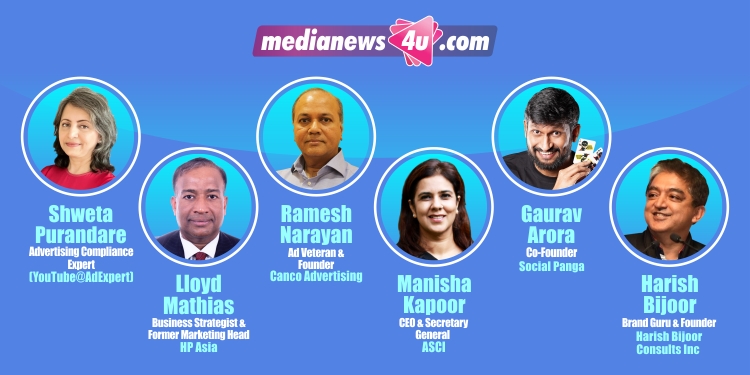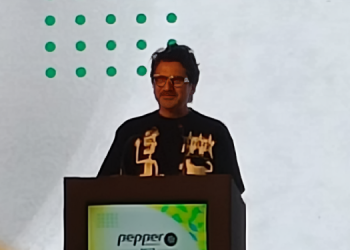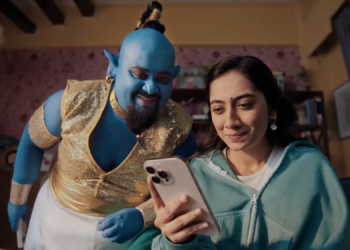#VimBlack was trending and not for the right reasons. The HUL dishwash brand meant to say that men sharing the dishwashing duties should be the norm, and hence they shouldn’t brag about it. A ‘Vim Black’ pack for men was shown in a promo featuring actor Milind Soman.
A large section of social media users weren’t amused and felt the ad was sexist. ‘Why a designated pack for men?’ they asked.
We asked some veterans and practitioners for their take, on whether the attempt did more harm than good for the brand. We asked: “Did Vim’s ‘Black’ adventure misfire?”
‘Seems to be by design’
- Lloyd Mathias, Business Strategist and former marketing head of HP Asia.
The Vim Black ad with Milind Soman is an interesting technique used by the brand to make a statement on men sharing household chores.
While the brand seems to have got trolled for gender discrimination, I would think Hindustan Unilever has used this Vim Black creative rendition to drive home the need for men to do their bit in running a home. Given the category, this is an interesting and relevant route chosen to raise awareness.
The controversy that has broken out will help raise salience for Vim in a relatively low involvement category. This seems to be by design.
It reminds me about Ariel’s hugely successful ‘Share the load’ campaign that turned the spotlight on the fact that in many Indian homes laundry was assumed to be the role of the lady.
‘Hard to believe that it is a joke’
- Shweta Purandare, Advertising Compliance Expert (YouTube@AdExpert)
Absolutely. Imagine an advertising giant resorting to such marketing gimmicks on the fringe of ‘dark patterns’ i.e. bait and switch or advertising a non-existent product. They went through an elaborate press release with quotes of their spokesperson and as well as their agencies.
If it were to be a real product, the advertisement could have passed off as a poorly conceived and executed satire. It is hard to believe that it is a joke as the company claims it to be, and if true, it is a pretty expensive one. While only the Milind Soman version of the ad is being talked about, they produced not one but three advertisements on the same lines – imagine the cost involved to create this joke. How is it even justifiable to brush off this campaign as a joke? The campaign tag-line is, “Easy to clean, more to brag”.
For an organisation occupying a key Vice Chair position Internationally on “The Unstereotype Alliance”, Vim has caused an expensive slip up by this local campaign. Ironically, in their report called “Levers of change” it states – “Gender stereotyping has been identified by the Convention on the Elimination of All Forms of Discrimination against Women (CEDAW) as a persistent hidden barrier to gender equality and the empowerment of women. Discriminatory social norms are equally threatening to gender equality and the empowerment of women and girls. …….. The results showcase the prevalence of discriminatory attitudes and gender-based stereotypes that perpetuate gender inequality, and underscore how widespread and deeply entrenched these views are across countries.”
Closer to home, Unilever is also a member of the Advertising Standards Council of India (ASCI). ASCI’s guidelines on Harmful Gender Stereotypes in Advertising states that “The use of humour or banter is not likely to overcome the underlying issue of such harmful stereotypes.”
The vulgar Layer’r Shot advertisement controversy seems to have encouraged advertisers to take the controversy route to free publicity but like Shot, Vim has definitely shot itself in the foot with this one.
A mega advertiser like HUL did not require such an awful marketing tactic to create buzz. Did it generate conversations? Sure it did – just like the dishwash product generating a lot of bubbles with no longevity. However, in the bargain, it has left behind a black smudge on their overall corporate reputation and undermined efforts by their other portfolio brands on breaking gender stereotypes.
‘People should think before taking to social media’
- Ramesh Narayan, Ad Veteran and Founder, Canco Advertising
Seriously I think people should think before taking to social media. To me the Vim ad was definitely not encouraging men to brag. In fact it seemed to be taking a swipe at the man who does tend to brag about helping out with the dishes.
Now if you ask me what was the connection between Vim Black and men, leave alone bragging men, I’m still figuring that out.
‘Execution has left people confused about the intent’
- Manisha Kapoor, CEO and Secretary General, ASCI
“It is important that domestic chores be shared by all household members and that this sharing is normalised in advertising. We see several ads where men doing basic chores like making tea or cleaning are over-celebrated for these ‘accomplishments’ – reinforcing that these are exceptional events. I believe the Vim ad is trying to convey a similar message, even though the execution seems to have left a few people confused about the actual intent.”
‘The thought was great but the approach did not work’
- Gaurav Arora, Co-Founder of Social Panga
There is a lot of negative chatter about how the men’s personal care segment is advertised and a great amount of sexist ads have been seen in the last 12 months. This seems like riding the wave though the attempt was a satire on the same and trying too hard to get attention. The thought was great but the approach did not work.
Post Covid era, a lot of things have changed in how we divide our household chores. It was just confusing whether the (social media) attack was on the brand associating black masculine packaging with males or a satire on men not helping in household chores.
‘When satires don’t work, you become the satire’
- Harish Bijoor, Brand Guru & Founder, Harish Bijoor Consults Inc.
Yes it did backfire.
When satires don’t work, you become the satire. And then brand crisis-management steps in.

















